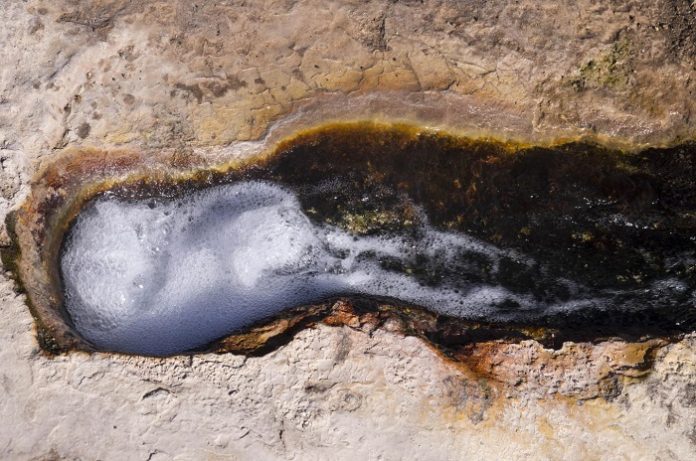
In a new study, researchers found bacteria may travel thousands of miles through the air globally.
The finding suggests that some bacteria don’t hitch rides with people and animals.
It also may help explain how harmful bacteria share antibiotic resistance genes.
The study was done by researchers from Rutgers University and their collaborators.
Previous research has shown that bacteriophages – viruses of bacteria – are the most abundant and ubiquitous forms of life on the planet.
The viruses have a strong influence on microbial populations, community structure, and evolution.
In the study, the team focused on the history of bacterial interaction with viruses over time.
They examined bacteria in several places globally, including heat-loving Thermus thermophilus bacteria in hot gravel on Mount Vesuvius and hot springs on Mount Etna in Italy; hot springs in the El Tatio region in northern Chile and southern Chile’s Termas del Flaco region; and hot springs in the Uzon caldera in Kamchatka, Russia.
In the beginning, the team thought that bacteria of the same species living in different isolated places would have different memories of their encounters with viruses.
But they found there were lots of shared memories, including same pieces of viral DNA stored in the same order in the DNA of bacteria from distant hot springs.
This means some bacteria can live in very hot water – about 160 degrees Fahrenheit – in remote places.
They suggest the bacteria must travel by air and this movement must be very extensive so bacteria in isolated places can share common features.
They also suggest that there is be a planet-wide mechanism that ensures the exchange of bacteria between faraway places.
The team suggests their analysis shows that harmful bacteria globally share antibiotic resistance genes and may also get dispersed by air instead of human travelers.
In the future, the team will test their hypothesis at different altitudes and locations around the world. They will use planes, drones or research balloons to do that.
The senior author is Konstantin Severinov, a principal investigator at the Waksman Institute of Microbiology and professor of molecular biology and biochemistry in the School of Arts and Sciences at Rutgers University-New Brunswick.
The study is published in a study in the journal Philosophical Transactions of the Royal Society B.
Copyright © 2019 Knowridge Science Report. All rights reserved.



